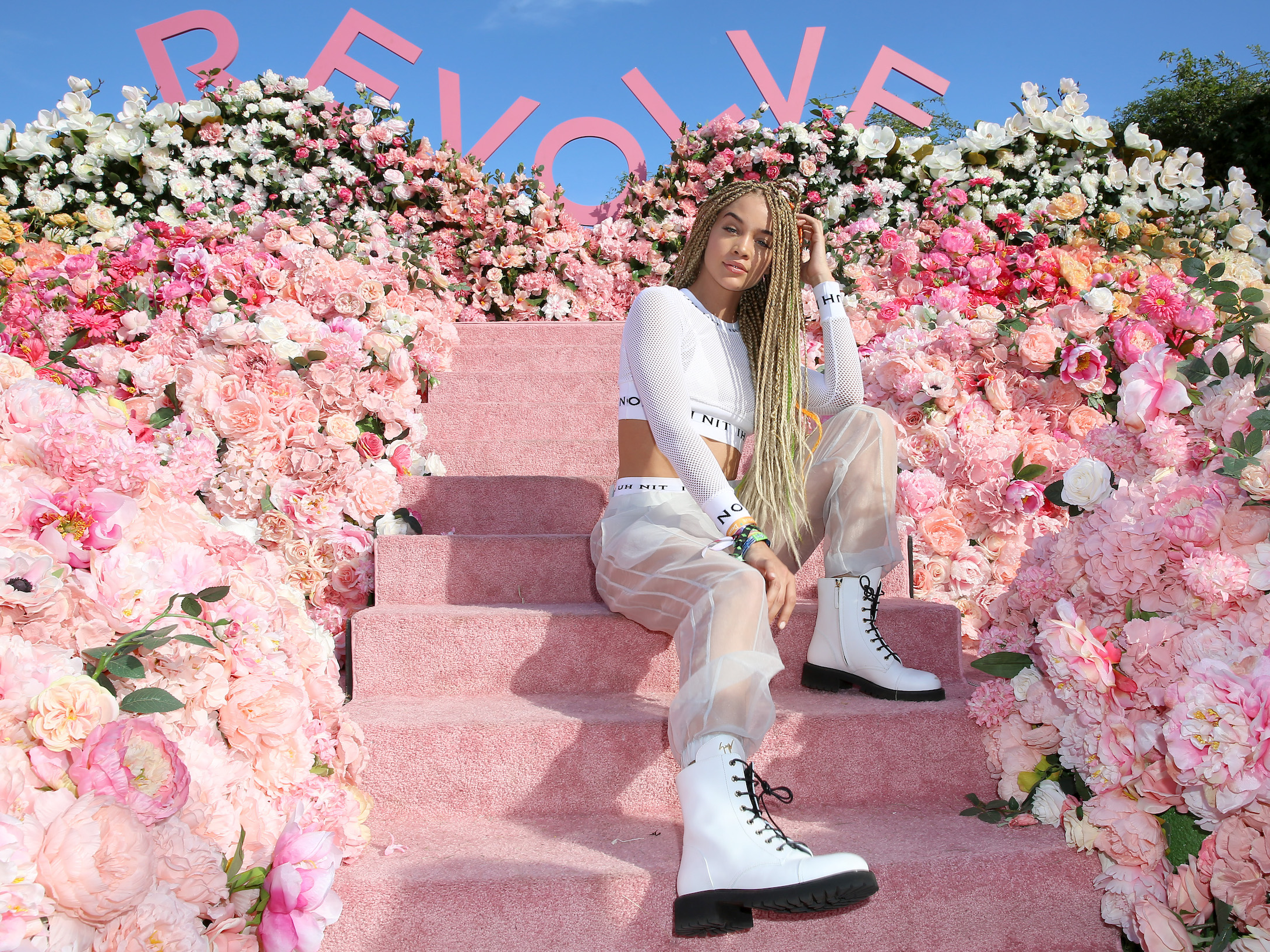- Online millennial-centric retailer Revolve raised $212 million in its initial public offering on Friday, hitting the market at a $1.2 billion valuation.
- Revolve reported net income of $31 million in 2018, thanks to its network of 3,500 influencers including high-profile celebrities like Kendall Jenner and Olivia Culpo, according to Vogue Business.
- Here’s how Revolve rose to prominence since its early days in 2003.
- Visit Business Insider’s homepage for more stories.
Online retailer Revolve launched its initial public offering on Friday.
The company’s $1.2 billion valuation points to the power of a data-driven online model built with the help of a savvy influencer marketing strategy. Chances are, if you haven’t shopped at Revolve, you’ve at least scrolled past an Instagram post of a Kardashian posing poolside from one of the brand’s extravagant soirées.
After its founding in the early aughts, Revolve hit its stride in the post-recession era, when it shifted away from exclusively selling luxury goods in order to better cater to millennial and Gen Z women seeking deals online.
Today, Revolve features a mix of designer looks as well as trendy, lower-priced collections. The company continues to thrive thanks in large part to its success on social media - Revolve boasts 3.1 million followers on Instagram and an influencer network of 3,500 people, according to Vogue Business.
"Revolve was a very early player in influencer marketing and is still one of the most prominent names in the space," Evan Asano, founder and CEO of MediaKix, told Forbes.
Here's the story of how Revolve positioned itself from relative obscurity to a disruptive e-commerce force, keeping competitors like Forever 21 and H&M on their toes.
Revolve was started in Los Angeles in 2003 by Michael Mente and Mike Karanikolas.
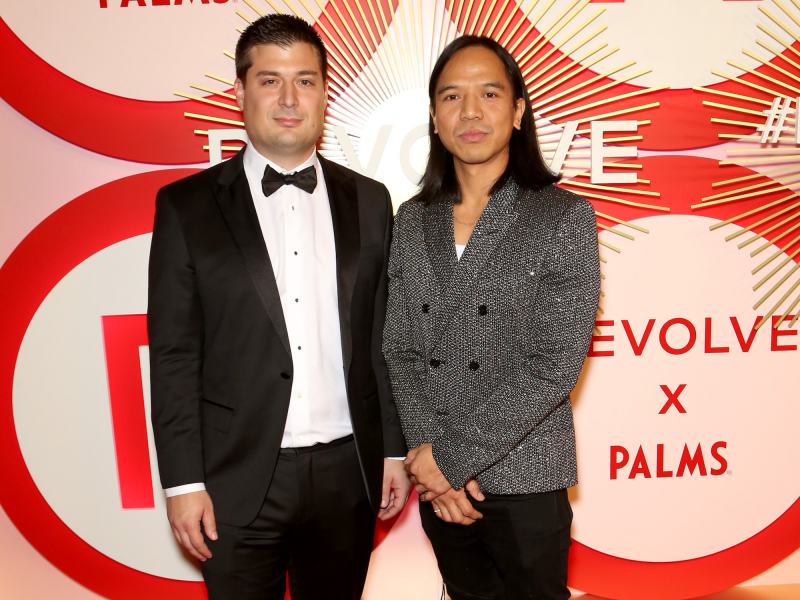
Mente had just dropped out of the University of Southern California when he met Karanikolas, a computer engineer, at the now-bankrupt software company NextStrat. "The Mikes," as their employees call them, wanted to develop an e-commerce site that strategically used data to bolster sales.
Though neither of the Mikes had fashion experience, they were seasoned experts in then-nascent e-commerce trends. They saw a gap in the market in online luxury fashion sales.
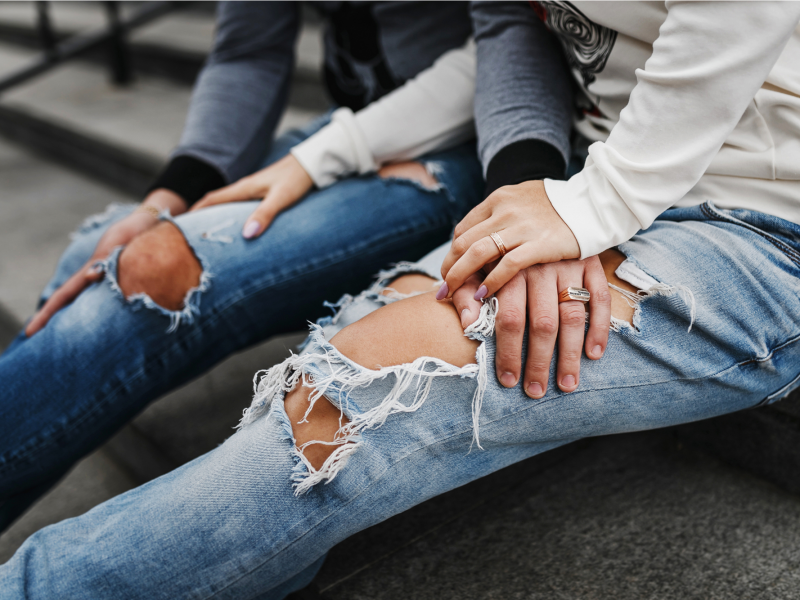
Mente told Fortune that the idea stemmed from recognizing that there was a high demand for 7 For All Mankind jeans in Los Angeles, but nowhere to purchase them on the internet.
Source: Fortune
They spent the next few years approaching fashion brands, convincing them to let Revolve sell their products. Designer denim became their sweet spot.
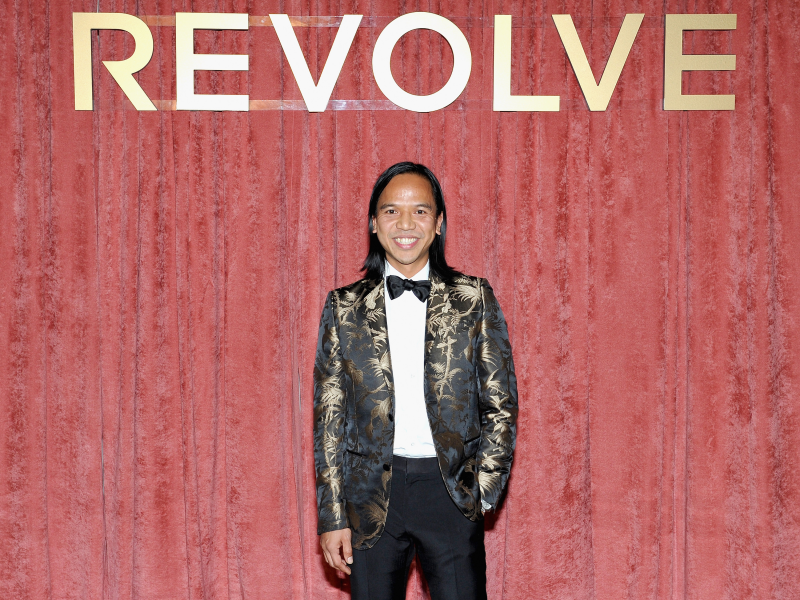
By 2007, the site featured more than 1,000 brands. "It was networking and hustling for access for many years," Mente told Fortune.
Then the recession hit, and demand for luxury goods plummeted. The Mikes decided to shift Revolve's approach, but first they needed to understand how to better appeal to millennial women, who were increasingly seeking deals online.
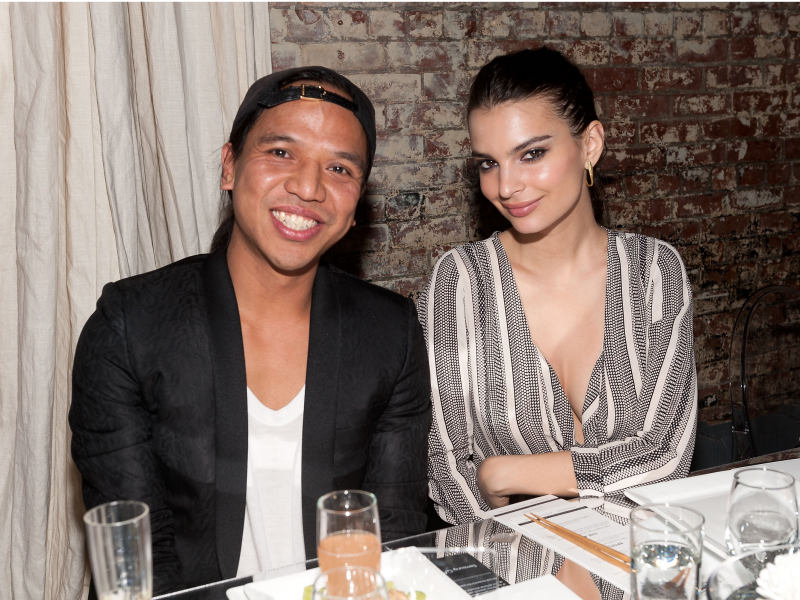
They spent the next year gleaning insight from young women on their shopping habits and finding ways to leverage millennials' ability to stay ahead of trends.
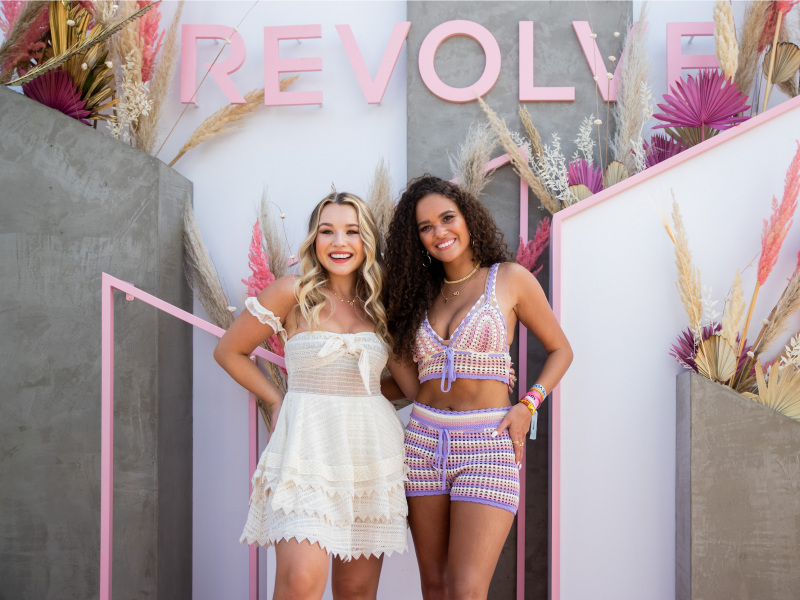
Then came the influencers. Mente and Karanikolas were among the first fashion companies to take advantage of the power of social media in selling their products.
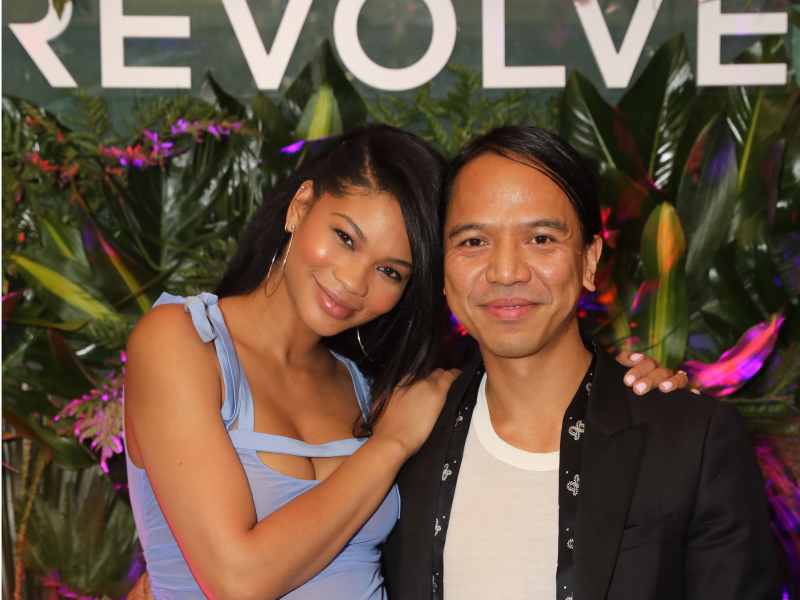
"With a data-driven back end, Revolve also sets itself apart on the front end with a savvy social media identity. Since 2009, the company has used hundreds of fashion experts and influencers instead of professional models to showcase its brands," Inc. reported.
In order to expand its influencer network and woo more brand ambassadors, Revolve began investing in wild, exclusive parties.
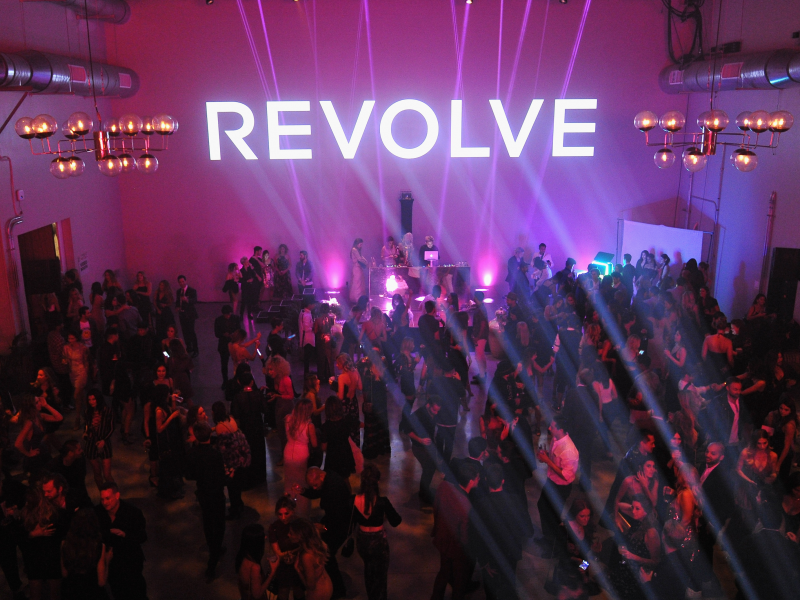
The events feature high-profile guest DJs and musical acts, including D.R.A.M., who performed at the Revolve Winter Formal in 2016.
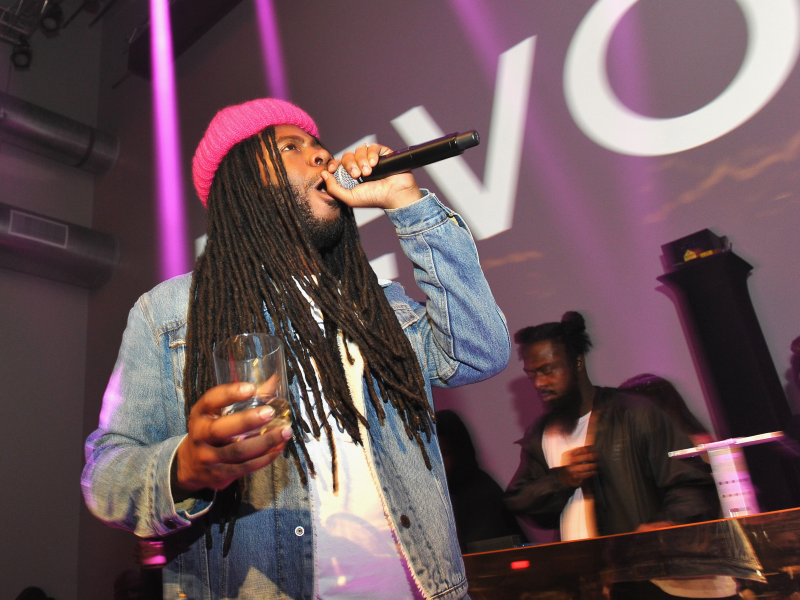
Revolve also became known for its lavish Coachella events, a haven for influencers attending the annual music festival.

The experience typically includes cabanas and decor like this sign made of flowers.

As Coachella grew into a hotbed of influencer marketing, the Revolve party became a prime spot for social media stars to come to be seen.
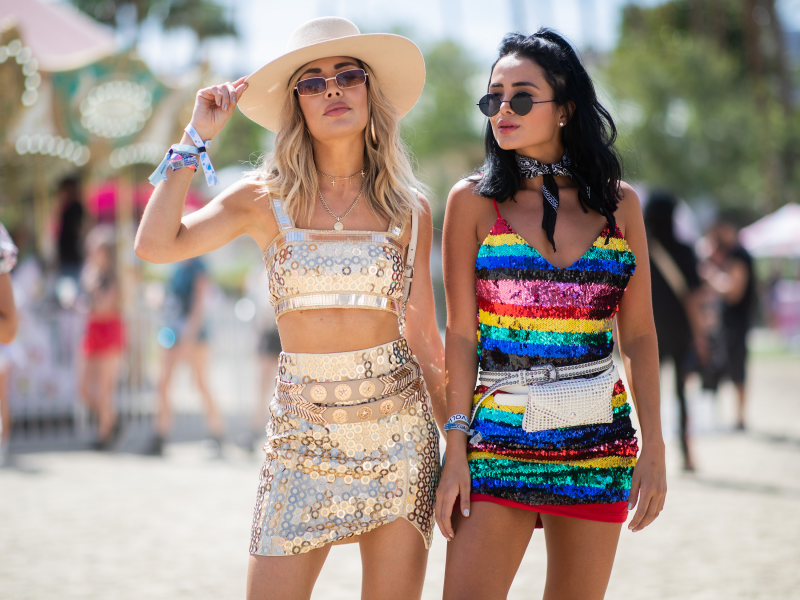
Today, Revolve has 3,500 influencers acting as spokespeople for the brand. This includes model Olivia Culpo, who has four million followers on Instagram.
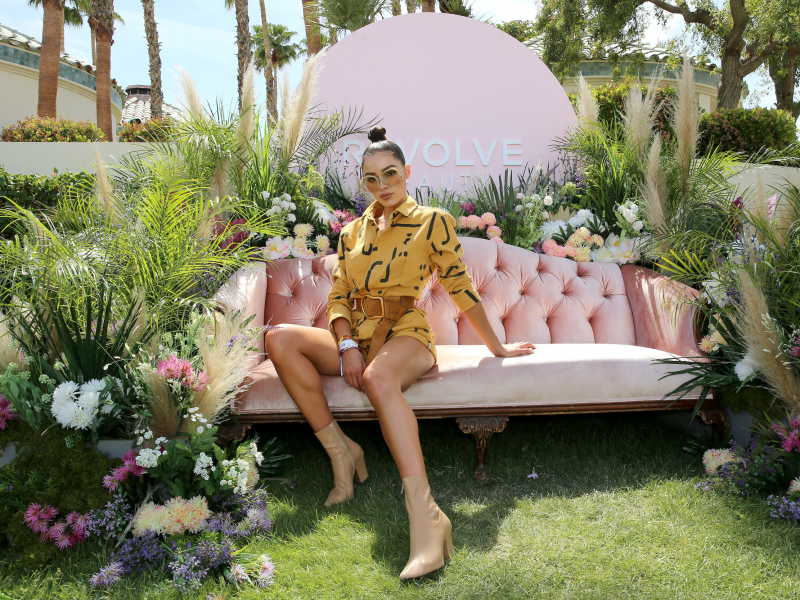
With its influencer network thriving, Revolve began developing its own private labels. It currently has 21 in-house brands that generate a third of its total sales.
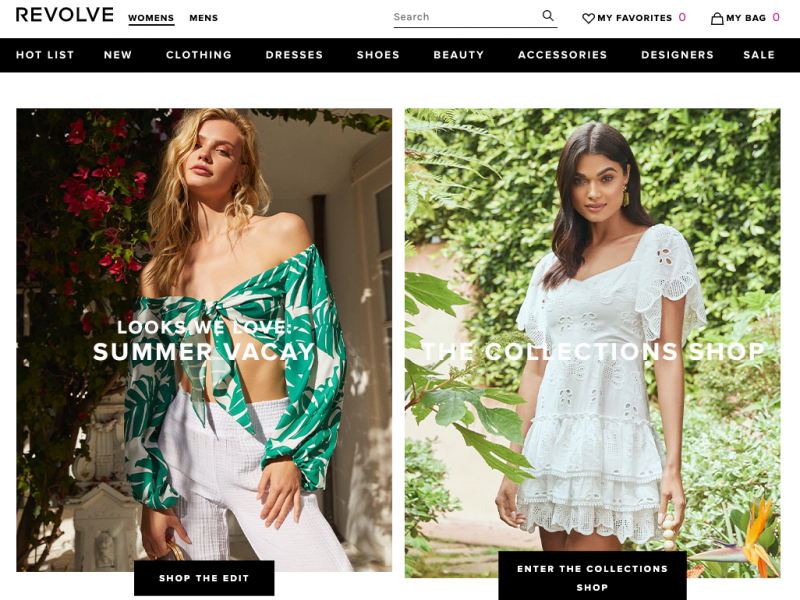
Source: Vogue Business
Some of these private labels include collaborations with celebrities, helping Revolve grow its profile. Jessica Alba was one of those celebrities.
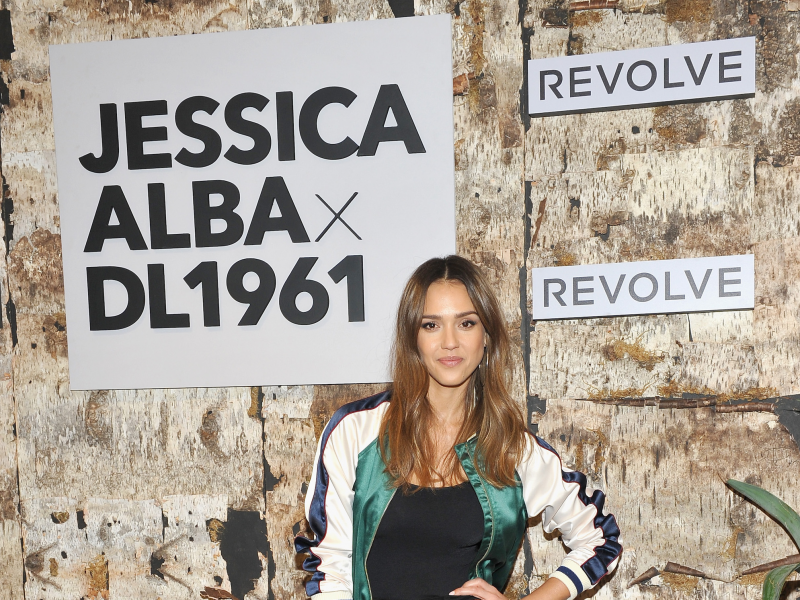
Nicole Richie is also a regular collaborator.
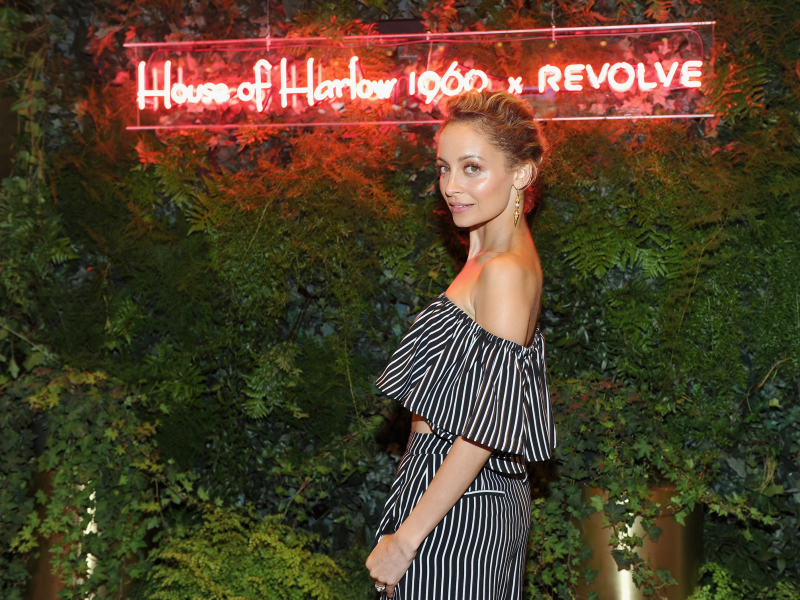
As Revolve's star grew, so did the number of celebrities affiliated with the brand. This includes nearly every member of the Kardashian clan, like Kendall Jenner ...
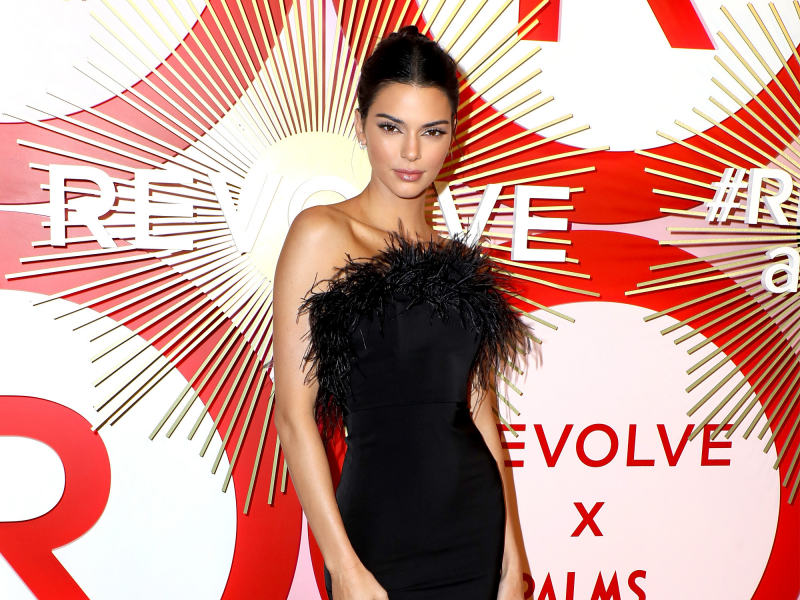
... and her sister, Kylie Jenner.
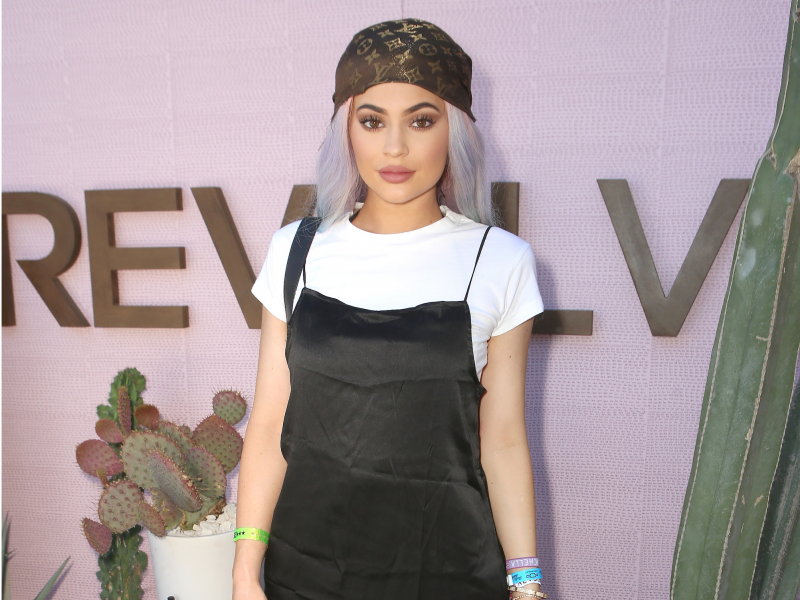
And of course, Kim Kardashian West herself.
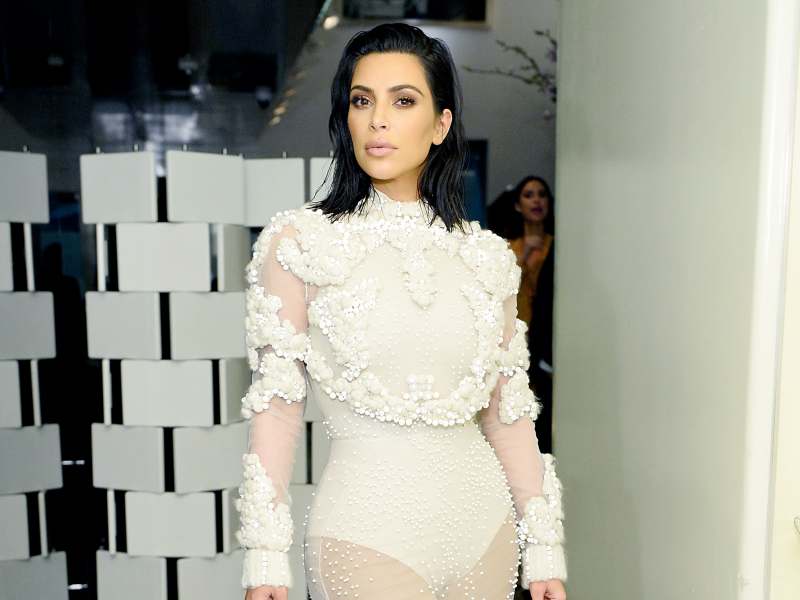
Despite its success, Revolve has also had its fair share of scandal. In 2018, the company came under fire for selling a sweatshirt that seemingly promoted fat shaming.
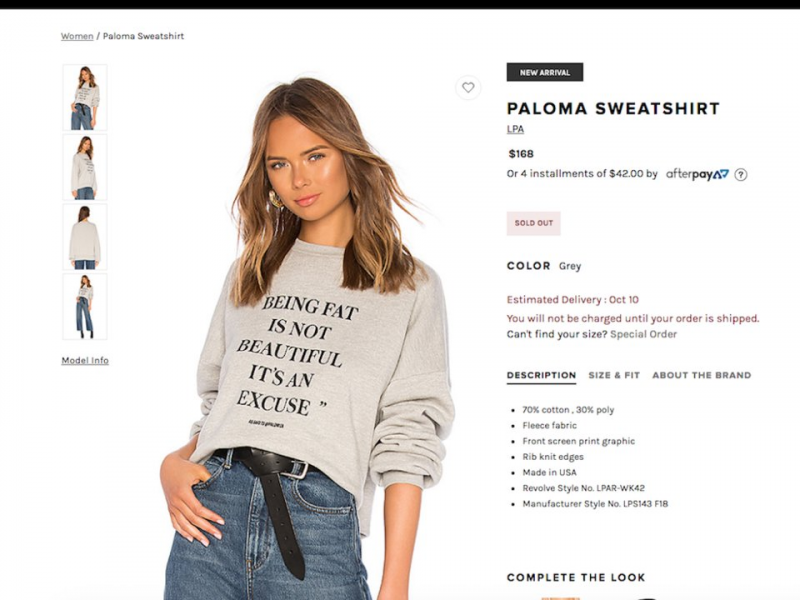
The sweatshirt, which was part of a collaboration with LPA, was allegedly intended to feature the worst troll quotes received by participating celebrities. In response to the backlash, Revolve pulled the sweatshirt and made a formal apology, claiming the imagery was released early without context.
Source: INSIDER
Revolve has also faced criticism for a lack of diversity, leading to the hashtag #RevolveSoWhite.
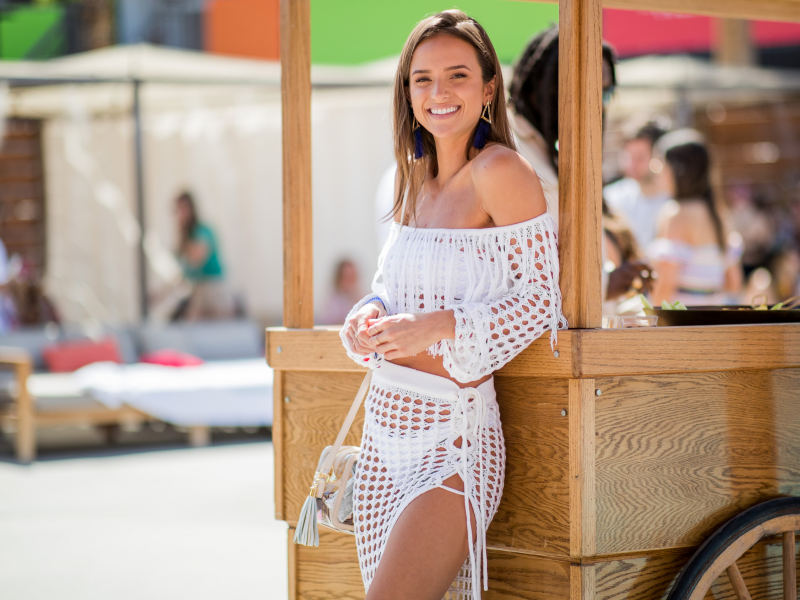
After Revolve posted a series of photos featuring only white women, fans began to speak out. Though Revolve did not respond to the comments, the next day it featured an Asian-American influencer on its Instagram account.
Source: Brit + Co
Still, Revolve sales continue to soar. It posted net sales of $499 million and net income of $31 million last year.
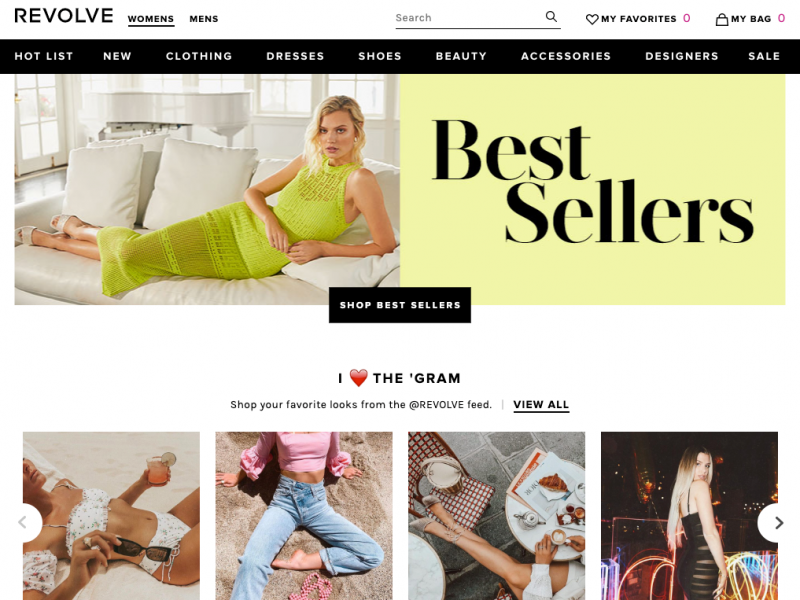
Source: Vogue Business
Its events continue to attract countless influencers and celebrities, like Winnie Harlow and Victoria Justice.
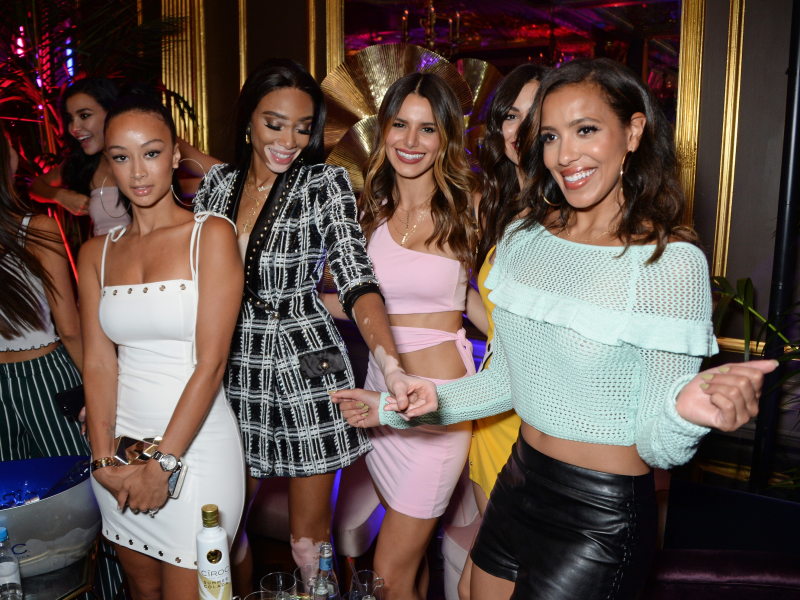
Now Mente and Karanikolas await the future of Revolve as it gets its bearings as a publicly traded company.


